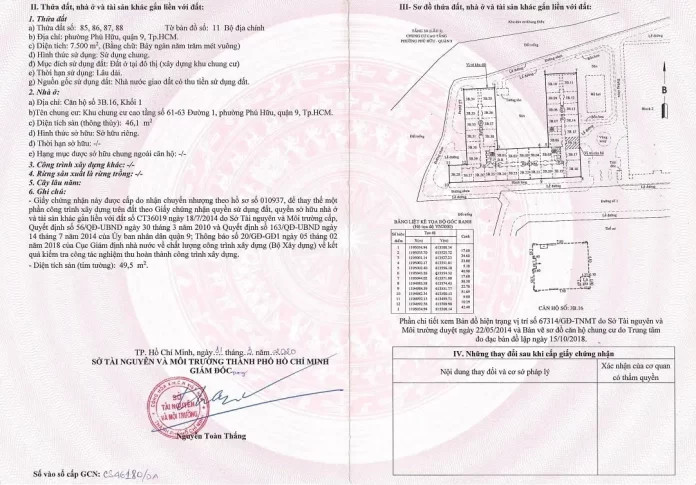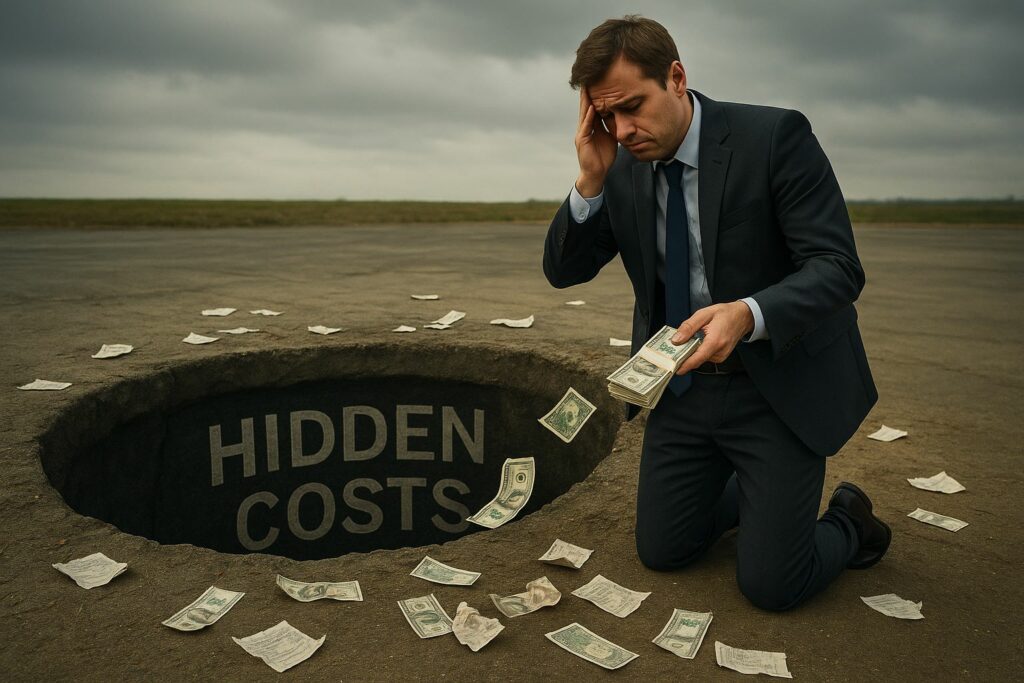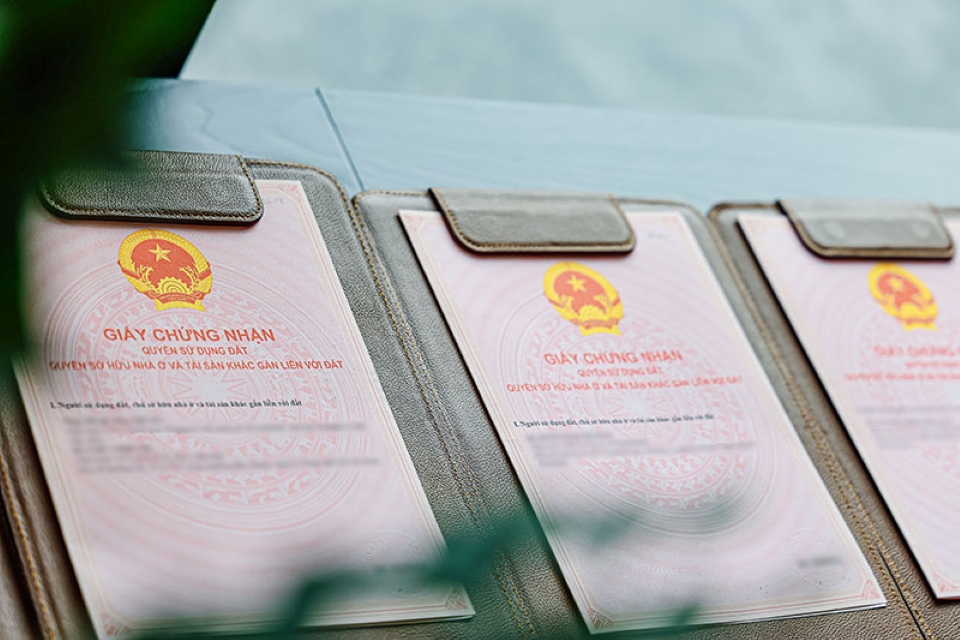Renting a Commercial Property in Da Nang? Here are 10 things to watch out for
Starting or expanding a business in Da Nang is an exciting prospect. The city is vibrant, growing, and full of opportunity. Finding the perfect commercial property in Da Nang is a critical step in turning your business plan into a reality. The right location can define your success, while the wrong one can lead to unforeseen costs, complications and potential failure.
Key Takeaways for Renting a Commercial Property in Da Nang
- Lease Before License: You must have a signed and notarized lease for your commercial property in Da Nang before you can finalize your business licenses. Plan for this critical first step in your business setup process.
- Verify Ownership and Structure: Verify the landlord’s ownership (via the “Pink Book”) and confirm the building is a legal structure, not just a temporary one on a land plot. Always inspect the property’s physical condition in person.
- The Contract Protects You: Your commercial lease agreement is your most important protection. Insist on a clear, bilingual lease contract and carefully review all the terms, especially those concerning the deposit, repairs, and lease termination.
- Work With a Commercial Specialist: Don’t use a residential agent for a commercial deal. A specialized agent or real estate broker in Da Nang understands the laws and the market and can navigate the entire complex process, from finding the right property to negotiating the final terms.
This guide is designed to be your trusted resource through this process. It is a step-by-step framework built on over six years of experience facilitating commercial leases in the Da Nang market for foreign entrepreneurs. We’ll walk you through the ten most important things you need to check before signing any lease, giving you the knowledge and confidence to secure the best possible business location for your venture and set your venture up for success from day one.
What Do I Need Legally Before I Can Start Looking?
This is one of the most confusing steps for new entrepreneurs in Vietnam because you face a classic ‘chicken-and-egg’ situation. To get your Vietnam business licenses (your Investment Registration Certificate – IRC, and Enterprise Registration Certificate – ERC), you need a registered business address. To have a registered address, you need a signed and notarized lease contract in Vietnam.
So, how do you sign a lease for a company that doesn’t technically exist yet? Here are the two common, practical solutions:
- Option 1: The Conditional Lease Agreement (Most Common)
This is the standard process. You find your ideal commercial property in Da Nang, negotiate the terms, and sign a formal lease agreement with the landlord, paying the deposit to secure it. It is understood by both parties that this signed contract is for the primary purpose of registering your business. You then provide this notarized lease to your lawyer to begin the IRC and ERC application process.- Pro Tip: This business registration period, which can take several weeks, is not wasted time. In our experience at MVP Vietnam, this can often be negotiated with the landlord as part of your rent-free “fit-out” period, allowing you to start renovations and planning for your business expansion in Vietnam while the paperwork is being processed.
- Option 2: The Virtual Office Address
An alternative strategy some law firms suggest is to first set up your company using a “virtual office” address. This allows you to secure your business licenses quickly without the immediate pressure of finding a physical location. Once your company is legally formed, you then search for your actual office space in Da Nang or retail outlet and sign a lease.- The Drawback: The main downside here is the extra cost and paperwork. You will have to file for an official change of address and get a new business license certificate issued, which incurs additional fees and takes more time.
Because of this complexity, it is crucial that your commercial agent and your lawyer are communicating. A professional agent will know how to rent a commercial property in Da Nang and can find landlords who are experienced with this process (or guide them).
How to Ensure a Property is Legally Suitable for Your Business
Choosing a great-looking property is easy. Ensuring it’s a legally viable location for your specific business is one of the most critical—and often misunderstood—steps. Here’s how to navigate it correctly.
Is “zoning” matters when you opening a business in Vietnam?
While the official land use purpose in the ownership documents (the “Pink Book”) is a factor, the practical reality for many businesses in Da Nang is more flexible. The most critical question is often not about general zoning and permits, but whether the specific location is eligible for the sub-licenses your business requires to operate legally.
Am I Renting a Legal Building or Just a Piece of Land?
This is a crucial distinction under foreign business rental rules in Vietnam. As a foreign-invested company, you are legally permitted to rent a building (an asset attached to the land), but you cannot legally rent just an empty plot of land.
Why This Matters:
You will often see properties, especially for restaurants or cafes, that are simple, temporary-style constructions (e.g., metal frames, shipping containers) built on a plot of land. While it looks like a building, it may not be legally registered as one.
If the landlord’s ownership documents only show “Land Use Rights” and do not list a permanent construction on that land, your lease contract in Vietnam is technically for the land, not a legal building. This can invalidate your lease and create significant problems for your business licenses.
How to Verify the Building’s Legal Status:
You must check the landlord’s ownership document (the Sổ Hồng or “Pink Book”).
- What to Look For: The document needs to explicitly show that there is an “asset attached to the land” (Tài sản gắn liền với đất). This confirms that a permanent, legal structure exists on the property.
- The Bottom Line: If the Pink Book only lists land and makes no mention of a building, you should not rent it for your foreign-owned company.

The Downstream Benefits of Verification:
Confirming the building is legally registered on the Pink Book is also:
- Proof of Construction License: It serves as evidence that the building was constructed legally and has the necessary permits.
- A Prerequisite for a Fire Safety License: You cannot apply for or receive a Fire Safety (PCCC) certificate for a structure that is not legally registered as a building. This check is a non-negotiable first step.
What Are the ‘Sub-Licenses’ required for setting up a business in Vietnam?
These are the specific, mandatory certificates your business must obtain after its initial registration. The ability to get these licenses is tied directly to the physical condition and layout of your chosen commercial property in Da Nang.
- Fire Safety Certificate (PCCC): This is a major hurdle. The property must meet strict requirements, which can include having adequate emergency exits, proper ventilation systems, and specific structural features. Many older buildings or ground-floor spaces were not designed for this and simply cannot pass the inspection.
- Food Hygiene and Safety License: This requires the kitchen layout to meet certain standards, including proper drainage, separate areas for raw and cooked food, and specific sink setups.
- Alcohol License: To sell alcohol, your location must meet specific conditions that are reviewed by local authorities.
- Spa & Salon Licenses: These businesses often require specific room layouts, ventilation, and plumbing that must be approved.
- Tourism License: If operate as a tour agency (inbound or outbound), the primary property-related requirement is having a legitimate, registered physical office. Your notarized lease agreement serves as proof of this stable operating location. Furthermore, to obtain this license, your business must also have a legally qualified director with certified experience or a degree in tourism management.
- Renovation permit: this is usually acquired by the contractor that helps you with redesigning the commercial property you have rented and does not affect the operation of the actual business.
An inability to secure even one of these sub-licenses can halt your business operations entirely, even after you’ve signed a lease and paid for renovations.
Who Makes the Final Call on a Property’s Viability?
Your lawyer is the ultimate authority on this matter.
This is the most important takeaway. While your real estate broker in Da Nang can find you great options and provide the necessary property documents, they are not qualified to give legal advice on licensing. The final “go-ahead” on a location’s viability for your specific business type should always come from your legal advisor.
What should I look for in the rental contract?
Your commercial lease contract in Vietnam is a very important document. It must be bilingual, clear, and reviewed carefully before signing. A detailed, legally sound commercial lease agreement is essential.
Key clauses to scrutinize in any property rental terms:
- Term (Duration): How long is the lease? What are the options and terms for renewal?
- Rent & Payment: Is the rent fixed or does it increase annually? By how much?
- Deposit: How many months’ deposit is required? What are the exact conditions for its full return?
- Termination: What are the penalties if you need to end the lease early? What are the penalties if the landlord ends the lease early?
- Responsibilities: Who is responsible for repairs (structural vs. interior)? This must be clearly defined.
Always insist on a bilingual (Vietnamese-English) contract. While the Vietnamese version will hold ultimate legal authority, the English version ensures you understand exactly what you are signing.
What hidden costs I should know about when renting a commercial property in Vietnam?

Yes, your monthly payment will almost certainly be more than just the base rent. You must budget for these common hidden costs of leasing in Vietnam to get a true picture of your expenses.
- Management Fee: In office buildings and commercial centers, this separate fee covers security, cleaning of common areas, and building maintenance.
- VAT (Value Added Tax): Is the quoted rent inclusive or exclusive of the 10% VAT? This makes a big difference.
- Utilities: You will pay for your own electricity and water. Ask to see previous bills to estimate costs.
- Parking: Does the building charge for car or motorbike parking for you and your staff?
- Fit-out / Renovation: You are usually responsible for the entire cost of renovating the space to fit your business needs.
What should I check for when I inspect the property?
You must conduct a thorough physical inspection of any commercial property in Da Nang before signing a lease. Use this property condition checklist during your visit:
| Category | What to Check |
| Electrical System | Can the system handle your equipment load? Are there enough outlets? |
| Plumbing | Check for leaks, water pressure, and proper drainage in all sinks and toilets. |
| Air Conditioning | Test all units (if any). Check their age and brand for reliability. |
| Structural Issues | Look for large cracks in walls, signs of water damage on the ceiling, and uneven floors. |
| Neighbors and surroundings | Is there enough space for parking? Will there be noise complaints (especially for bars or restaurant) |
These building inspection tips are crucial. Take photos and videos of everything, especially existing damage, and attach them to your lease agreement to protect your deposit.
How do I know the landlord is the real owner?
You can and should confirm that you are dealing with the legal owner. This protects you from rental scams. Before paying a deposit, ask the landlord or their agent to provide:
- The Ownership Certificate (Sổ Hồng): This is the official land use right certificate issued by the Vietnamese government.
- Their Personal ID Card: The name on the ID should match the name on the ownership certificate.
- The Company’s Business License: If the owner is a company, you need to see their license.
A legitimate landlord or a professional commercial agent will have no problem providing these documents.

How Do I Choose the Best Location for My Business in Da Nang?
The best areas for business in Da Nang depend entirely on your target customer. You must choose a location based on foot traffic, accessibility, and customer demographics.
| Area | Best For | Pros | Cons |
| Hai Chau (City Center) | Corporate offices, high-end retail, finance, spas or F&B | Central location, riverfront, close to Han Market | High rent, traffic congestion |
| An Thuong (Tourist Hub) | Restaurants, bars, spas, tour agencies | High foot traffic from tourists | High competition, seasonal changes, high rent |
| Son Tra (Coastal District) | Cafes, local services, creative offices | More affordable, growing expat community | Less foot traffic than An Thuong |
Pro Tip: Spend time in a potential location at different times of the day. This ground-level research is invaluable when searching for the right shop space in Da Nang.
Can I Negotiate the Rent and Other Terms?
Yes, almost all property rental terms in Vietnam are negotiable. The listed price is often just a starting point.
Here are some landlord negotiation tips:
- Rent-Free Period: It is standard practice to ask for a “rent-free” period of 15-45 days to complete your renovations.
- Deposit: You can often negotiate a three-month deposit down to two, especially for a longer lease.
- Rental Price: Research the real estate trends in Da Nang for similar properties. If you sign a longer lease (3-5 years), you have more leverage to negotiate a better monthly rate.
Do I need a special real estate agent for commercial properties?
Yes, you should use a certified real estate agency with proven experience in commercial properties, not just residential rentals. Finding the right commercial property in Da Nang requires specialized knowledge and local network.
A professional commercial property agent understands commercial lease laws, has a portfolio of business properties, and can grasp your specific needs. A real estate broker in Da Nang with a long history in the market, such as MVP Vietnam, provides a level of trust and expertise that is essential when starting a business.
What happens if I need to end my lease early?
You must have a clear exit strategy by understanding the termination clause in your lease before you sign. The lease will specify the financial penalties for breaking it early, which often means losing your entire security deposit.
During the contract negotiation, try to negotiate a more favorable clause. For example, you could propose a term that allows you to find a suitable replacement tenant to take over your lease, which would allow you to recover your deposit. This is one of the most important expat business tips for minimizing risk when dealing with a commercial lease contract in Vietnam.
What happens if the landlord wants to end the lease early?
This is a crucial scenario to prepare for. Just as you have obligations, so does the landlord. A professional commercial lease agreement should protect both parties.
Standard landlord termination clauses
A well-drafted lease contract in Vietnam will specify the limited and legitimate reasons a landlord can terminate the lease early. These typically include situations where the tenant has seriously breached the contract, such as:
- Failing to pay rent for an extended period (usually after multiple warnings).
- Using the commercial property in Da Nang for illegal activities.
- Making major structural alterations to the property without permission.
- Sub-leasing the property to another party without the landlord’s consent.
What If the landlord wants to terminate without a valid reason?
This is where your contract is most important. A strong lease should include a penalty clause for the landlord if they terminate the contract without a valid, contractually-defined reason (for example, they simply want to sell the property or rent it to someone else for a higher price).
- The Penalty Clause: A fair clause will typically state that if the landlord unlawfully terminates the lease, they must:
- Return Your Full Security Deposit: This is the absolute minimum.
- Pay a Penalty Fee: This fee is usually equivalent to one or two months’ rent.
- Compensate for Your Fit-Out Costs: This is a key point for a business property rental. You may have invested tens of thousands of dollars renovating the space. A strong contract can include a clause that requires the landlord to compensate you for a portion of these “sunk costs” if they force you to move.
Pro Tip: This is a critical negotiation point. When you are reviewing your property rental terms, pay close attention to this section. Ensure the penalties for the landlord are clearly stated and are significant enough to deter them from breaking the contract without good cause. This provides you with crucial stability for your business operations.
Renting a commercial property in Da Nang is a significant investment of your time and money. The process is complex, but it does not have to be risky. By performing thorough due diligence you can protect your business from hidden costs of leasing in Vietnam.
This guide provides the essential framework for the safe rental process of commercial property in Da Nang . If you require professional assistance from a specialized commercial agent to navigate these steps and secure the right location, our team is here to help.
1. What is the first legal step to rent a commercial property in Vietnam as a foreigner?
The first step is to find a property and sign a notarized lease agreement. This signed lease is a required document that your lawyer will use to apply for your business licenses (IRC and ERC).
2. Can I open any type of business in any building?
No. The property must be eligible for any specific sub-licenses your business needs, such as fire safety, food hygiene, or alcohol licenses. Your lawyer should always give the final approval on a location’s viability for your specific business type.
3. What are the most important clauses in a commercial lease agreement?
The most important clauses to check are the lease term, rent and payment schedule, deposit return conditions, responsibilities for repairs, and the termination clause, which outlines the penalties for ending the lease early.
4. What are the typical hidden costs of leasing a commercial space?
Besides the base rent, you should budget for a potential management fee, 10% VAT, monthly utility bills (electricity, water), parking fees, and the full cost of renovations.
5. How can I verify the landlord is the real owner of the property in Vietnam?
You should ask to see the property’s official Ownership Certificate (Sổ Hồng), and ensure the name on it matches the landlord’s ID card.
6. What are the best areas for business in Da Nang?
The best areas depend on your business. Hai Chau (the city center) is best for corporate offices and high-end retail. An Thuong is best for tourist-focused businesses like restaurants and bars. Son Tra is good for cafes and local service businesses.
7. Is the rent negotiable in Da Nang?
Yes, the rent is almost always negotiable. You have more leverage if you sign a longer lease (3-5 years) and are willing to pay rent several months in advance.
8. Why should I use a commercial real estate agent?
A specialized commercial agent understands commercial lease laws, has access to suitable properties, and can help you negotiate better terms. An agency like MVP Vietnam provides a level of expertise that is crucial for a major business decision.
9. What should I do if I need to end my lease early?
Before signing, you must understand the termination clause. It is wise to try and negotiate a term that allows you to find a replacement tenant, which may help you recover your security deposit.
10. How do I start the process of finding a commercial property?
The best way to start is by contacting a professional real estate agency in Da Nang. They can provide current listings based on your specific business needs, arrange viewings, and guide you through the entire rental process.

